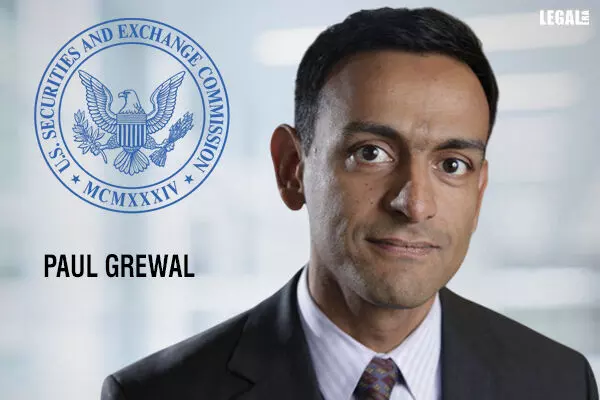- Home
- News
- Articles+
- Aerospace
- AI
- Agriculture
- Alternate Dispute Resolution
- Arbitration & Mediation
- Banking and Finance
- Bankruptcy
- Book Review
- Bribery & Corruption
- Commercial Litigation
- Competition Law
- Conference Reports
- Consumer Products
- Contract
- Corporate Governance
- Corporate Law
- Covid-19
- Cryptocurrency
- Cybersecurity
- Data Protection
- Defence
- Digital Economy
- E-commerce
- Employment Law
- Energy and Natural Resources
- Entertainment and Sports Law
- Environmental Law
- ESG
- FDI
- Food and Beverage
- Gaming
- Health Care
- IBC Diaries
- In Focus
- Inclusion & Diversity
- Insurance Law
- Intellectual Property
- International Law
- IP & Tech Era
- Know the Law
- Labour Laws
- Law & Policy and Regulation
- Litigation
- Litigation Funding
- Manufacturing
- Mergers & Acquisitions
- NFTs
- Privacy
- Private Equity
- Project Finance
- Real Estate
- Risk and Compliance
- Student Corner
- Take On Board
- Tax
- Technology Media and Telecom
- Tributes
- Viewpoint
- Zoom In
- Law Firms
- In-House
- Rankings
- E-Magazine
- Legal Era TV
- Events
- News
- Articles
- Aerospace
- AI
- Agriculture
- Alternate Dispute Resolution
- Arbitration & Mediation
- Banking and Finance
- Bankruptcy
- Book Review
- Bribery & Corruption
- Commercial Litigation
- Competition Law
- Conference Reports
- Consumer Products
- Contract
- Corporate Governance
- Corporate Law
- Covid-19
- Cryptocurrency
- Cybersecurity
- Data Protection
- Defence
- Digital Economy
- E-commerce
- Employment Law
- Energy and Natural Resources
- Entertainment and Sports Law
- Environmental Law
- ESG
- FDI
- Food and Beverage
- Gaming
- Health Care
- IBC Diaries
- In Focus
- Inclusion & Diversity
- Insurance Law
- Intellectual Property
- International Law
- IP & Tech Era
- Know the Law
- Labour Laws
- Law & Policy and Regulation
- Litigation
- Litigation Funding
- Manufacturing
- Mergers & Acquisitions
- NFTs
- Privacy
- Private Equity
- Project Finance
- Real Estate
- Risk and Compliance
- Student Corner
- Take On Board
- Tax
- Technology Media and Telecom
- Tributes
- Viewpoint
- Zoom In
- Law Firms
- In-House
- Rankings
- E-Magazine
- Legal Era TV
- Events
Paul Grewal Of Coinbase Claims Securities And Exchange Commission Would Junk Lawsuit Against The Company

Paul Grewal Of Coinbase Claims Securities And Exchange Commission Would Junk Lawsuit Against The Company
This would end a contentious years-long legal battle for the trading platform
The US Securities and Exchange Commission (SEC) has decided to withdraw its lawsuit against the largest crypto exchange, Coinbase as it rethinks its approach to regulations.
This includes revising litigation against crypto firms, which impacted major platforms like Coinbase and its rival trading platform, Binance.
Paul Grewal, the Chief Legal Officer of Coinbase stated, “The war against crypto, at least as it applies to Coinbase, is over."
The statement came after the SEC revamped its approach to policing the crypto sector under Republican leadership since President Donald Trump took office.
The agency has established a dedicated task force and rescinded key crypto-related accounting guidance. It is expected to review pending court cases.
The decision to dismiss the lawsuit against Coinbase would be one of the many lawsuits before the appointment of Paul Atkins as SEC’s chairperson, a choice made by President Trump.
It was anticipated that cases against crypto firms, especially those violating the SEC's rules but not defrauding the investors, would be considered. However, to seek settlements and dismiss all pending matters, would be exceptional.
The SEC had sued Coinbase, Binance and Kraken in 2023.
The Commission accused Coinbase of flouting the rules and trading 13 crypto tokens that should have been registered as securities.
The lawsuit targeted Coinbase's ‘staking program, in which it pools assets to verify activity on blockchain networks and takes commissions, in exchange for ‘rewards’ to customers. This program should have been registered with the agency.
However, Coinbase contended that crypto assets, unlike stocks and bonds, were not under the investment contract, a position held by most of the crypto industry.
The Supreme Court had clarified that an investment product was when people invested in a common enterprise expecting a profit.
Better Markets, which advocates for stricter government rules for the financial sector, stated it would be a ‘historic mistake’ to drop the lawsuit against Coinbase.
Dennis Kelleher, the president and CEO of Better Markets remarked, "The SEC used to enforce the law without fear or favor but is now favoring the crypto industry and fearing billionaire crypto kingpins who are publicly belittling the agency.”
The analysts at Piper Sandler said in a research note that dismissing the case “removes a significant overhang that has kept some investors on the sidelines for nearly two years."
Gary Gensler, the former Democratic agency chair, had made fighting misconduct in the ‘wild west’ sector a priority for the SEC, targeting the fraudsters and the large firms that facilitate trading. It boosted the size of the crypto enforcement unit.
He added that the Commission had scaled the effort by reassigning lawyers and renaming the unit to focus on ‘cyber and emerging technologies.’
Meanwhile, acting SEC chairperson Mark Uyeda and Republican Commissioner Hester Peirce hoped for new crypto-specific rules.
Coinbase stated, "We have a very positive, productive relationship with the new SEC and are working (in) lockstep with them to get this addressed.”
In keeping with his promise to overhaul the crypto policy, President Trump created a cryptocurrency working group, proposing new digital asset regulations and exploring the creation of a national cryptocurrency stockpile.
During his campaign, he pledged to be a ‘crypto president’ and courted cash from the industry by promising to promote the adoption of digital assets.
He has also ordered that banking services for crypto companies must be protected.


